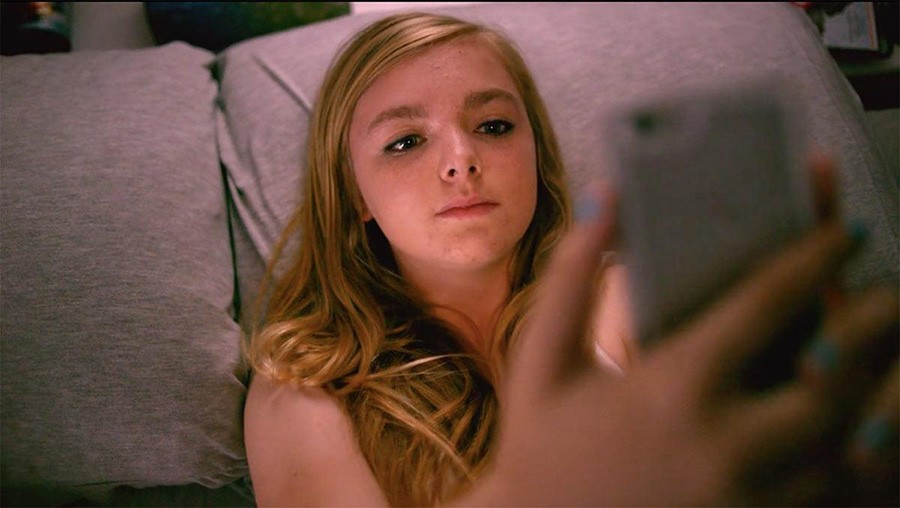Eighth Grade Review
Over the last few years, the horror genre has experienced a sort of renaissance at least partially on the back of some exemplary art-house titles released by A24, including The Witch and Hereditary. The studio’s latest horror film is a very different sort of movie.
Bo Burnham’s Eighth Grade doesn’t feature ghosts (unless you count the lead character’s SpongeBob memory stick) or other creatures of the night, yet viewers of every generation should find something terrifying over the course of the film’s 100 minutes. Generation Z will certainly find their social-media-obsessed contemporary’s social anxiety relatable. Millennials and Gen X-ers, perhaps on the cusp of parenthood themselves (*raises hand*), will feel a chill run down their spines seeing this teen bury her head in her phone with music blaring through her ears over dinner with her father. Baby Boomers may find the idea of something called Snapchat pretty terrifying outside the context of the film.
Of course, viewers of Eighth Grade will know that terror is nothing more than a side effect of depicting this precious period between adolescence and young adulthood with such brutal honesty. Burnham isn’t aiming to scare anyone. It just happens. And the experience of watching this movie is all the better as a result.
Eighth Grade takes place over a rather short period of time—the last two weeks or so of a girl’s middle school years. Kayla (Elsie Fisher) is shy. In her yearbook, she’s voted “Most Quiet.†But she spends most of her time at home playing someone else on YouTube. Her videos, though very rarely viewed, touch on topics like being yourself, making friends, and all sorts of other things on which she’s hardly an authority.
At school, she doesn’t really have a friend. She’d love to get closer to popular girl Kennedy (Catherine Oliviere) and dreamy Aiden (Luke Prael), but neither has much time for someone as awkward and uninteresting as Kayla. Her dad (Josh Hamilton) thinks Kayla is pretty cool, but he can’t hold a candle to the world of Instagram that Kayla is content enough to get lost in after school hours.
We see Kayla struggle through Kennedy’s birthday party, go to horrifying lengths to attract Aiden’s affection, and connect with a bubbly and kind-hearted high-schooler, Olivia (Emily Robinson), who goes above and beyond her duties as a shadow and actually asks Kayla to accompany her and her friends to the mall—an unheard of development that nearly brings Kayla to tears. But with every step forward, Kayla takes two or three steps back until the film reaches a boiling point: Will this girl be able to take her own online persona’s advice?
Burnham, making his feature directorial debut, is unfussy in terms of the film’s imagery and style, but his choice to shoot Kayla from behind so much puts us into her shoes and shows us the impressive and surprising physicality in his leading actress’ performance. Kayla walks like she’s the most quiet girl at school. The film intercuts her YouTube advice over images of her doing the exact opposite, and this couldn’t be clearer than it is in the pool party scene. She enters the backyard like a turtle physically trying to retreat within herself. It’s brutal to watch, but it resonates unlike most other scenes and performances I’ve seen this year.
If the film falters, it does so only so slightly in the way it turns following a truly terrifying climax in a car. I’m not sure I bought how quickly the character changes, but it’s no fault of Fisher or Hamilton, who both give outstanding, lived-in performances. (Hamilton’s is particularly impressive for the way he so subtly hints at holding some of the same social insecurities as his daughter.)
Overall, Eighth Grade is an extremely memorable motion picture. It belongs in the coming-of-age hall-of-fame, even though its formula is quite different from what we’ve come to expect from the genre, and it marks Burnham as a talent to keep a very close eye on in the future.

















One Response to Eighth Grade Review